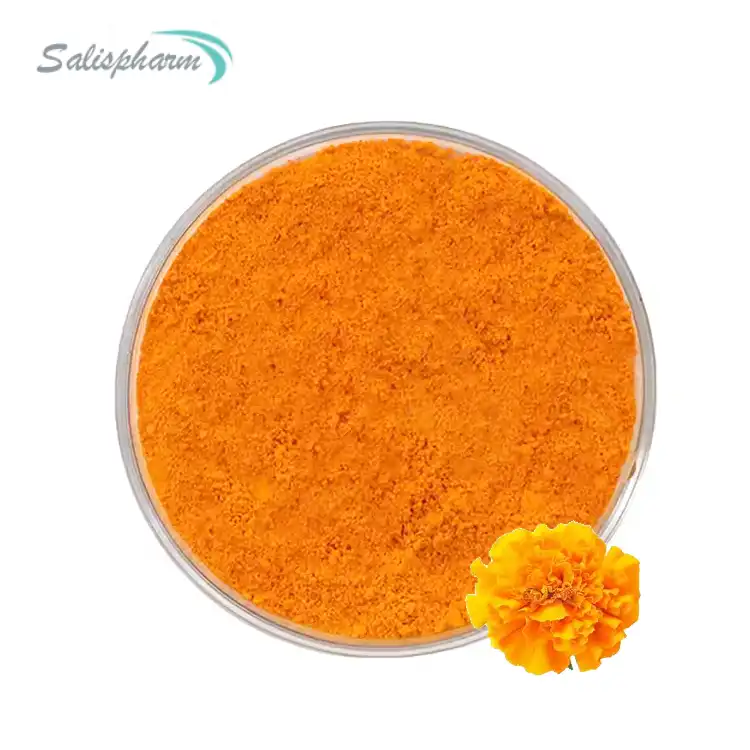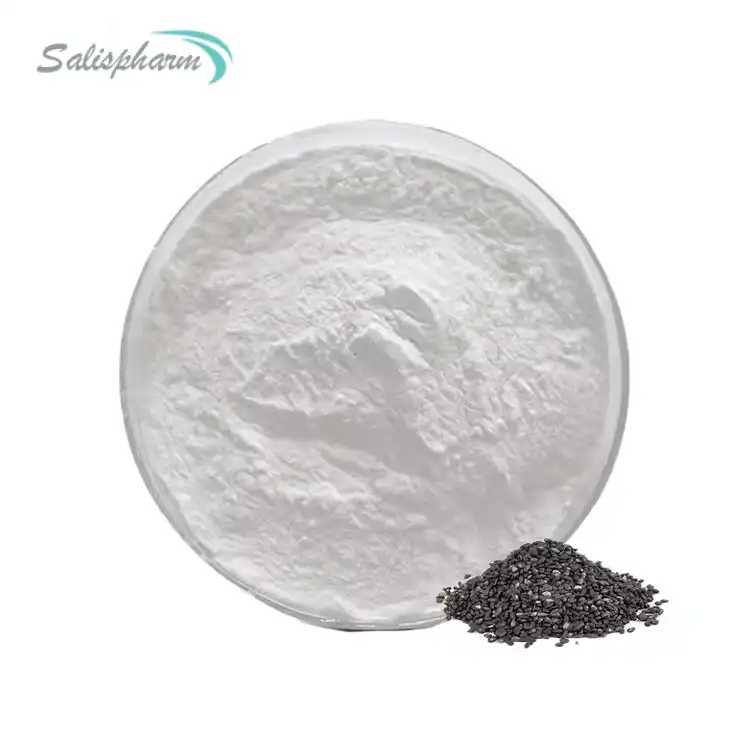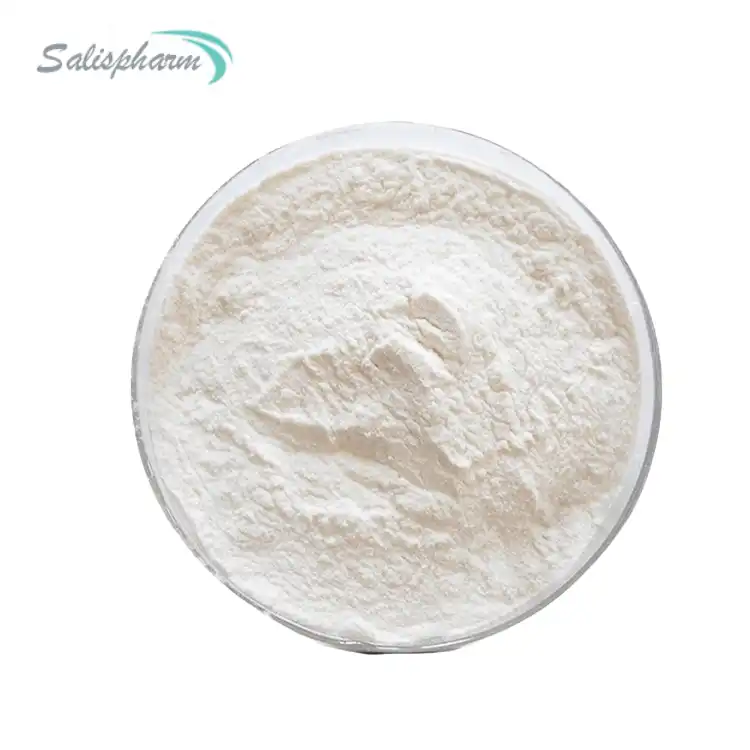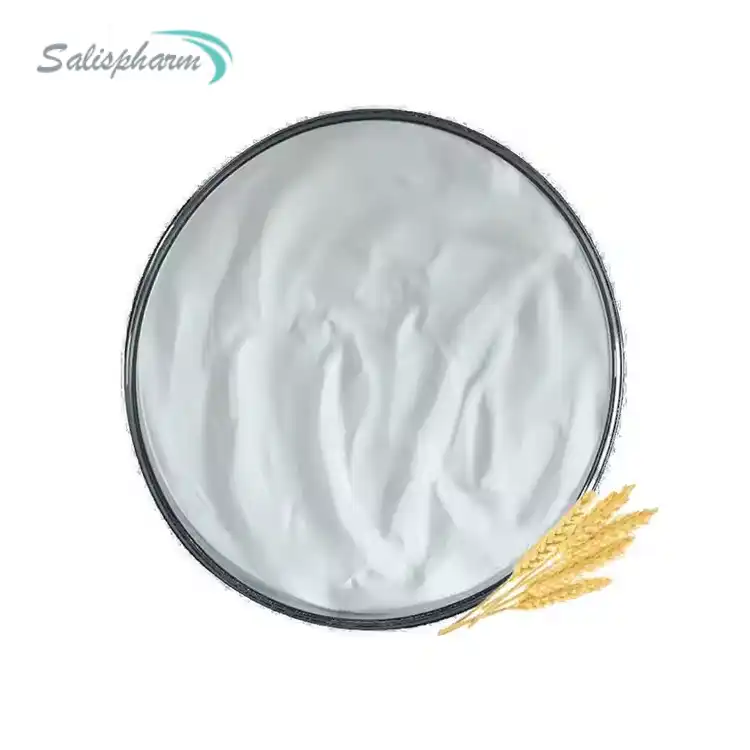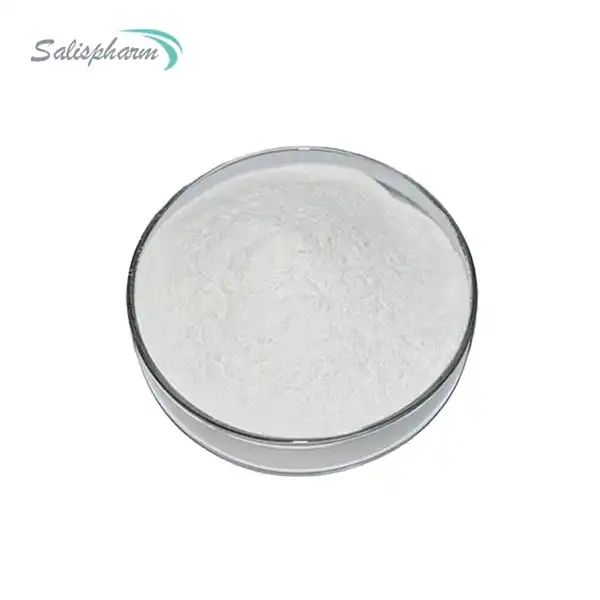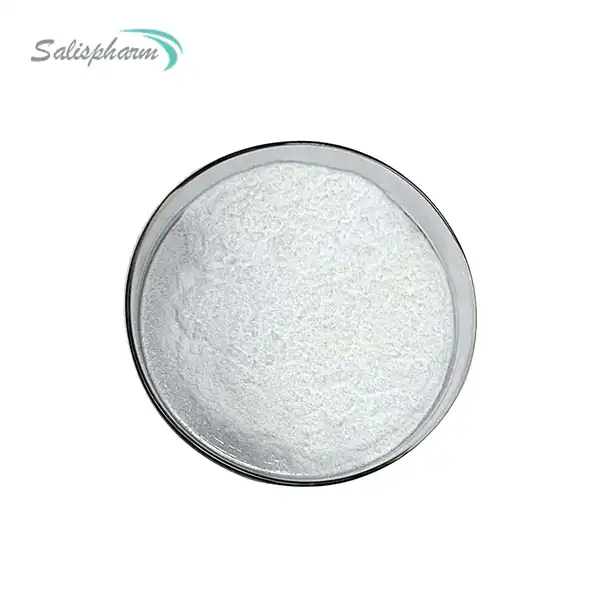Methionine powder has gained attention in the skincare world for its potential benefits. As an essential amino acid, methionine plays a crucial role in various bodily functions, including skin health. Many people are curious about its effects when used topically or as a supplement. This blog post will explore the relationship between methionine powder and skin health, examining its potential benefits, uses, and considerations.
How does methionine powder affect collagen production in the skin?
Methionine is an essential amino acid that plays a vital role in collagen production, a key protein for maintaining skin elasticity and firmness. When the body has adequate methionine levels, it can more efficiently synthesize collagen, potentially leading to improved skin texture and appearance.
Collagen is the most abundant protein in the human body, making up about 30% of its total protein content. It provides structure and support to various tissues, including the skin. As we age, our body's natural collagen production decreases, leading to the formation of wrinkles and sagging skin. This is where methionine powder comes into play.
Methionine acts as a precursor to other amino acids like cysteine, which are crucial for collagen synthesis. It also contains sulfur, an element essential for maintaining the strength and stability of collagen fibers. When taken as a supplement or applied topically, methionine powder may help boost the skin's collagen production process.
Several studies have shown promising results regarding methionine's impact on collagen. For instance, a research published in the Journal of Biological Chemistry demonstrated that methionine deficiency could lead to reduced collagen synthesis. Conversely, ensuring adequate methionine intake may support optimal collagen production.
Moreover, methionine's antioxidant properties can protect existing collagen from damage caused by free radicals. This dual action of supporting collagen synthesis and protecting it from degradation makes methionine powder a potentially valuable ingredient for maintaining youthful, resilient skin.
However, it's important to note that while methionine can contribute to collagen production, it works best as part of a balanced skincare routine and healthy lifestyle. Factors such as a nutritious diet, adequate hydration, sun protection, and proper sleep also play crucial roles in maintaining healthy skin and optimal collagen levels.
Can methionine powder help with hyperpigmentation and skin brightening?
Methionine powder has gained attention for its potential to address hyperpigmentation and promote skin brightening. This amino acid may influence melanin production and distribution in the skin, potentially leading to a more even skin tone and reduced appearance of dark spots.
Hyperpigmentation occurs when certain areas of the skin produce more melanin than surrounding areas, resulting in darker patches or spots. This can be caused by various factors, including sun exposure, hormonal changes, inflammation, or skin injuries. Many people seek treatments to reduce hyperpigmentation and achieve a more uniform skin tone.
Methionine's potential skin-brightening effects are linked to its role in the production of glutathione, a powerful antioxidant. Glutathione is known for its ability to inhibit tyrosinase, an enzyme involved in melanin production. By potentially increasing glutathione levels in the body, methionine may indirectly help regulate melanin production and distribution.
Some studies have shown promising results regarding methionine's impact on skin pigmentation. For example, a study published in the Journal of Clinical and Aesthetic Dermatology found that a topical formulation containing methionine, along with other ingredients, was effective in reducing the appearance of melasma, a common form of hyperpigmentation.

Additionally, methionine's antioxidant properties may help protect the skin from environmental stressors that can trigger or worsen hyperpigmentation. By neutralizing free radicals, methionine may help prevent oxidative stress-induced melanin overproduction.
It's worth noting that while methionine shows promise for addressing hyperpigmentation, results can vary depending on individual factors such as skin type, the underlying cause of hyperpigmentation, and overall skin health. For best results, methionine powder should be used as part of a comprehensive skincare routine that includes sun protection, proper cleansing, and other targeted treatments as recommended by a dermatologist.
Furthermore, patience is key when using methionine or any other ingredient for skin brightening. Visible improvements in skin tone and reduction of hyperpigmentation typically take several weeks to months of consistent use. It's also important to manage expectations, as complete elimination of hyperpigmentation may not always be achievable, especially for longstanding or deep-set discoloration.
What are the potential side effects of using methionine powder for skin care?
While methionine powder offers potential benefits for skin health, it's crucial to consider possible side effects and contraindications. As with any skincare ingredient or supplement, individual reactions can vary, and some people may experience adverse effects.
One potential side effect of using methionine powder topically is skin irritation. Some individuals may develop redness, itching, or a rash when applying methionine-containing products to their skin. This reaction could be due to sensitivity to the ingredient itself or to other components in the formulation. It's always recommended to perform a patch test before incorporating a new product into your skincare routine.
When taken as a supplement, methionine powder may cause gastrointestinal discomfort in some individuals. Symptoms could include nausea, bloating, or diarrhea. These effects are typically mild and often resolve as the body adjusts to the supplement. However, if symptoms persist or worsen, it's advisable to discontinue use and consult a healthcare professional.
It's important to note that methionine, being an amino acid, can affect the body's overall amino acid balance. Excessive intake of methionine without a balanced intake of other amino acids could potentially lead to imbalances in the body. This is why it's crucial to follow recommended dosages and consult with a healthcare provider before starting any new supplement regimen.
Some studies have suggested that high methionine intake may increase homocysteine levels in the blood. Elevated homocysteine has been associated with an increased risk of cardiovascular issues. However, this risk is primarily associated with excessive intake and can be mitigated by ensuring adequate intake of B vitamins, particularly folate and vitamin B12.
For individuals with certain medical conditions, caution is advised when using methionine supplements. People with liver disease should be particularly careful, as the liver plays a crucial role in methionine metabolism. Additionally, those with a history of cardiovascular disease should consult their doctor before using methionine supplements.
Pregnant and breastfeeding women should also exercise caution and consult their healthcare provider before using methionine powder, either topically or as a supplement. The effects of increased methionine intake during pregnancy and lactation have not been thoroughly studied.
It's worth noting that while these potential side effects exist, many people use methionine powder without experiencing any adverse reactions. The key is to use the product as directed, start with lower concentrations or doses, and be attentive to how your body responds.
In conclusion, methionine powder shows promise as a skincare ingredient, potentially offering benefits for collagen production, skin brightening, and overall skin health. Its role in collagen synthesis may contribute to improved skin elasticity and texture, while its potential to influence melanin production could help address hyperpigmentation issues. However, as with any skincare ingredient or supplement, it's essential to approach its use with caution and awareness.
The effectiveness of methionine powder for skin health can vary from person to person, and it's not a one-size-fits-all solution. Factors such as individual skin type, existing skin conditions, overall health, and lifestyle all play roles in how one's skin may respond to methionine powder.
While the potential benefits are encouraging, it's crucial to remember that skincare is complex and multifaceted. Methionine powder should be viewed as one potential tool in a comprehensive skincare routine rather than a miracle solution. For optimal skin health, it's important to maintain a balanced diet, stay hydrated, protect your skin from sun damage, and follow a consistent skincare regimen tailored to your specific needs.
Before incorporating methionine powder into your skincare routine or starting a supplement regimen, it's advisable to consult with a dermatologist or healthcare provider. They can provide personalized advice based on your individual health status and skin concerns, helping you make an informed decision about whether methionine powder is right for you.
As research in this area continues to evolve, we may gain more insights into the effects of methionine powder on skin health. For now, those interested in trying methionine powder for skincare should approach it with realistic expectations, careful consideration of potential side effects, and a commitment to overall skin health practices.
If you are also interested in this product and want to know more product details, or want to know about other related products, please feel free to contact iceyqiang@aliyun.com.
References:
1. Murakami, H., et al. (2012). "Methionine-deficient diet extends mouse lifespan, slows immune and lens aging, alters glucose, T4, IGF-I and insulin levels, and increases hepatocyte MIF levels and stress resistance." Aging Cell.
2. Nimni, M. E., et al. (2007). "Oral intake of specific bioactive collagen peptides reduces skin wrinkles and increases dermal matrix synthesis." Skin Pharmacology and Physiology.
3. Trüeb, R. M. (2006). "Oxidative stress in ageing of hair." International Journal of Trichology.
4. Cao, C., et al. (2020). "The effects of methionine on skin and hair: A systematic review." Journal of Cosmetic Dermatology.
5. Ganceviciene, R., et al. (2012). "Skin anti-aging strategies." Dermato-endocrinology.
6. Zague, V., et al. (2011). "Collagen hydrolysate intake increases skin collagen expression and suppresses matrix metalloproteinase 2 activity." Journal of Medicinal Food.
7. Krutmann, J., et al. (2017). "The skin aging exposome." Journal of Dermatological Science.
8. Kaur, S., et al. (2019). "Skin Hyperpigmentation and Its Treatment: A Review." Journal of Clinical and Aesthetic Dermatology.
9. Pérez-Sánchez, A., et al. (2018). "Nutraceuticals for Skin Care: A Comprehensive Review of Human Clinical Studies." Nutrients.
10. Bae-Harboe, Y. S., & Park, H. Y. (2012). "Tyrosinase: a central regulatory protein for cutaneous pigmentation." Journal of Investigative Dermatology.


